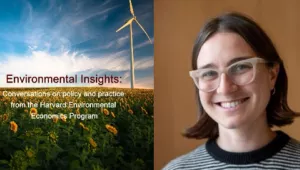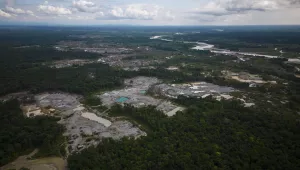
Letter to the Editor
Note
Robert Stavins responds to "Climate Change's Unknown Costs" by Naomi Oreskes and Nicholas Stern, which appeared in the New York Times on October 25, 2019.
In "Climate Change's Unknown Costs" (Op-Ed, Oct. 25), two prominent scholars, Naomi Oreskes and Nicholas Stern, suggest that it is failures of economic analysis that have caused insufficient action by world leaders. This is giving entirely too much credit to the influence of economists.
But the blame for inaction is indeed linked with economic realities.
First, climate change is a global problem. Hence, it is in the self-interest of most jurisdictions to free-ride on the actions of others.
Second, because greenhouse gases accumulate in the atmosphere, the most severe consequences of climate change will be in the future, but climate change policies and attendant mitigation costs need to be up front, presenting the politically challenging combination of upfront costs and delayed benefits.
Third, the economic benefits of climate change policies will, in general, be more diffuse than the cost impacts, presenting another challenge in representative democracies.
Moreover, the specific deficiencies Professors Oreskes and Stern claim infect economic analyses ignore the highly influential work on catastrophic impacts by my colleague Martin Weitzman, as well as fundamental analyses by the Nobel laureate William Nordhaus.
Robert N. Stavins
Cambridge, Mass.
The writer is a professor of environmental economics at Harvard.
Stavins, Robert N. "The Economics of Climate Change: Letter to the Editor." New York Times, October 25, 2019.
The full text of this publication is available via The New York Times.




